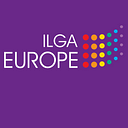The shocking state of LGBTI children’s rights in Europe
We expect all children to be protected from violence and discrimination, and to have access to appropriate legal protection, but in the EU the truth is far from this case, and LGBTI children are particularly vulnerable. Here’s why.
Children should be protected from all forms of physical or mental violence, according to the UN Convention on the Rights of the Child, the EU Charter of Fundamental Rights and the European Convention on Human Rights. However, LGBTI children and young people still face widespread discrimination and exclusion all across Europe. The COVID-19 crisis is making them more vulnerable to abuse and marginalisation.
LGBTI children, children perceived as queer, and those coming from rainbow families experience discrimination and violence at school for their gender and sexuality or that of their parents. Almost 6 in 10 students will hide that they are LGBTI, as observed in the latest Fundamental Rights Agency (FRA) survey on LGBTI people in Europe.
Sometimes, discrimination starts at home, where rejection from their families can lead to mental health problems, and often homelessness, as we have seen exacerbated by the COVID-19 crisis.
Trans young people are frequently denied legal recognition and access to transition-related healthcare, or face abusive requirements, while intersex children go through unnecessary and unconsented medical interventions, which can have life-long negative consequences, and are exposed to very high levels of stigma, which can lead to family violence, gaps in education, and homelessness.
Children in rainbow families are vulnerable
When LGBTI parents cannot get married or register their partnership, or when they cannot become parents legally, their children are left in precarious positions. If, for instance, the recognised parent dies, the child is left legally orphaned, and has no right to the care of their other unrecognised parent. This lack of legal recognition of parenthood deprives the child and their parents of various rights such as inheritance rights, the right to parental leave, visitation rights, pension rights, and the right to alimony, and can result in some children being left undocumented and at risk of statelessness.
Same-sex parents and trans parents aren’t recognised
In 12 EU countries, same-sex parents are unable to get married, and in six EU countries same-sex relationships cannot be recognised at all (Bulgaria, Latvia, Lithuania, Poland, Romania and Slovakia). Registered partnerships allow parental rights in some countries but not in others.
Recognition of trans parents is especially complicated. In many cases, there are not clear regulations and individual family situations are decided on a case-by-case basis. In just four EU countries, the recognition of trans men as fathers and trans women as mothers is fully accessible, while non-binary parenthood recognition is even more uncommon. Trans parents who cannot access legal gender recognition also cannot be recognised in their gender in relation to their children. Although legal gender recognition can be accessed in 41 countries in Europe, 20 of them require divorce before accessing it. 10 of these countries are in the EU.
In the remaining countries, parents who have their gender legally recognised may still not be able to be recognised as a parent in their gender, both when changing their legal gender before or after the registration of their child.
Trans children are left unprotected
The lack of inclusion of minors in legal gender recognition (LGR) processes or the creation of processes with additional requirements only applicable to minors (such as parental consent or judicial oversight) constitute discrimination on the basis of age and further marginalises trans children and adolescents. They are left unprotected and have a higher chance of facing discrimination in all areas of their lives.
Trans children also face additional barriers and discrimination when trying to access healthcare, particularly trans-specific healthcare, that may include counselling, hormone blockers and/or hormone replacement therapy. The FRA LGBTI survey shows that 17% of trans respondents aged 15 to 17 in the EU avoided healthcare services, while 15% have been the subject of inappropriate curiosity or comments from healthcare professionals. Discrimination in healthcare has devastating consequences on the physical and mental health of trans children, yet they and their parents often encounter prejudice, lack of information and appropriate care in general health services.
Intersex children are regularly mutilated and attacked
Intersex children are subjected to invasive medicalisation without informed consent. According to the FRA LGBTI survey, 62% of intersex respondents and their parents were not able to provide informed consent to a surgical intervention, while 49% did not provide consent for hormonal treatment. However, non-vital, non-emergency surgeries are regularly performed on intersex infants and children, and hormonal treatment is given in childhood, both of which often have devastating effects into adulthood.
At school, intersex children are subjected to physical and sexual attacks, hate-speech and bullying. The FRA survey shows that 14% of intersex children between 15 and 17 years old have experienced a physical attack in the 12 months prior to the survey and 39% of these attacks happened at school. 56% reported severe psychological problems as a result and 9% were hospitalised, making intersex children, together with trans children, the most vulnerable.
All children have the right to protection and care
Article 24 of the EU Charter of Fundamental Rights states that “children shall have the right to such protection and care as is necessary for their well-being”. It also states that actions relating to them should be taken in the child’s best interest and that every child has the right to be in regular contact with their parents, unless it is contrary to the child’s interest. As with every child, LGBTI children should be able to enjoy these inalienable rights, and deserve to grow up in a world that values and cherishes them and their families equally.
Check out ILGA-Europe’s website for more!
